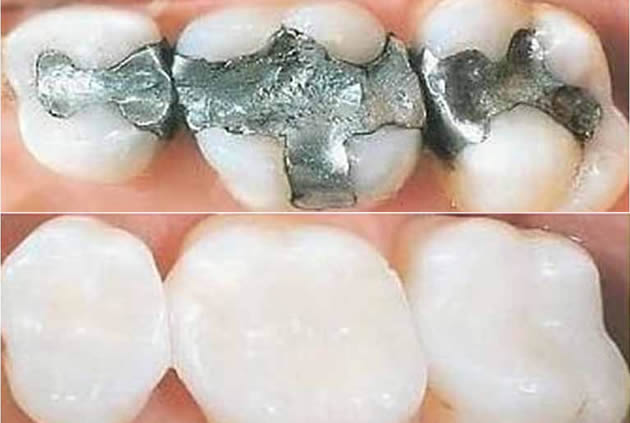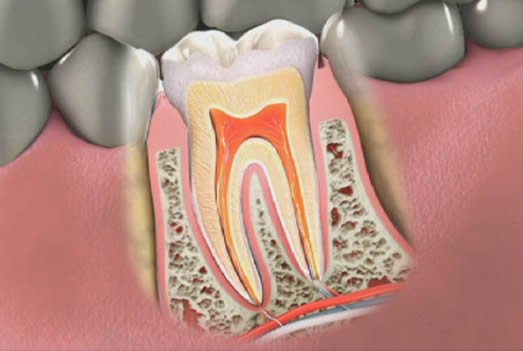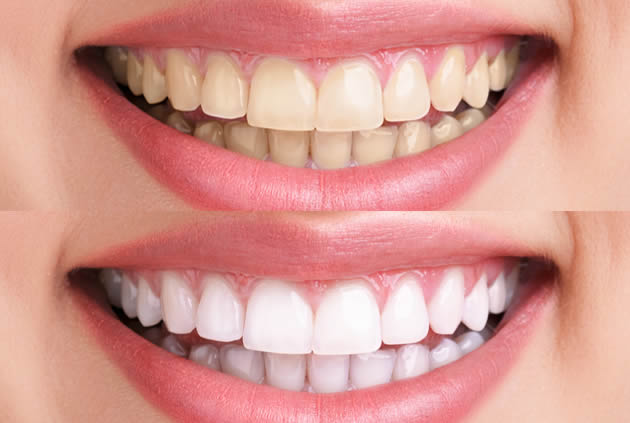For many years, dentists removed cavities and filled them with metal amalgams. Traditional metal fillings are less expensive and were often the first choice for fixing damaged teeth. Recently, composite resin fillings have become the top method for restoring smiles. Ultimately, the decision rests with the patient; however, many dentists have moved to placing only composite fillings.
Silver fillings actually weaken the natural tooth structure, although they do repair the decayed area. As well, metal fillings contain mercury, which can become toxic in large doses. Metal fillings can expand, contract, or leak from wear over time. In many cases, they also darken with age.
Tinted to match natural teeth, composite resin fillings preserve your bright, white image. With composite resin fillings, less tooth area needs to be removed, which keeps as much of your original tooth in tact as possible. Because tooth-colored fillings actually bond to the tooth, you don’t have to worry about these restorations changing shape or cracking.
To place a composite restoration, your dentist will clean out the decay and prepare the tooth. Then, the doctor will fill the area with the composite material. With a special curing light, your dentist hardens the filling and polishes the tooth.
When you have metal fillings, check with your dentist and request an evaluation of their stability. Some people choose to replace amalgam fillings because of the way they look. If your old fillings develop additional decay or fracture, you will need to have the restorations repaired in order to restore the tooth.
Schedule a dental cleaning appointment today at our Baltimore dentists office.











